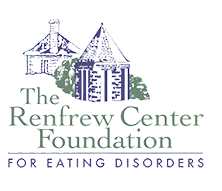By Judith Ruskay Rabinor, Ph.D
“I’m wondering if you can help me?” I met with 66-year-old Adrienne (a pseudonym) on Zoom.
Her 38-year-old daughter was refusing to see or have any contact with her. “Our relationship is over, mother dear,” were Helena, her daughter’s words when she stormed out of Adrienne’s home a week earlier. Since then, Helena had refused to answer Adrienne’s calls, emails or texts.
As Adrienne’s story unfolded, I learned Helena was born a year after Adrienne suffered two profound losses. First, Adrienne lost Adam, her first born, infant to crib death. Then, while Helena was pregnant with Adrienne, without warning, she lost her 58-year-old mother to a fatal brain aneurysm.
Adrienne described how she’d been enveloped by depression after these losses “I must have been a terrible mother,” she admitted, realizing she had spent most of Helena’s first two years of life in bed while a series of short-lived babysitters cared for Helena. “I know that my depression impacted my daughter big time and now I am paying the price.”
After our session, Adrienne sent her daughter a letter inviting her to a therapy session. “I’m eager to work on myself and our relationship, and I know how badly I’ve hurt you,” she wrote. To her surprise, Helena accepted her invitation.
Parental estrangement is a now a major social epidemic: Children of every age are making decisions to relieve themselves from what were once deemed mandatory family obligations. Parents and grandparents are now being simply cancelled out of adult children’s’ lives.
In anticipating this mother-daughter session, I thought about how I could be most helpful. As a daughter, a mother and a therapist, I know all relationships are imperfect. Most of us have done things we regret and often, don’t even understand. And yet, none of us are as bad as the worst thing we have ever done. Luckily, sometimes life gives us a second chance. Would Adrienne be able apologize in a way that would feel sincere and heartfelt to her daughter? Would Helena accept her mother’s apology? These are the questions that lingered in my heart as I awaited our next session…






